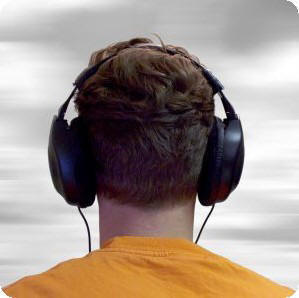Modals
Welcome to the ESL HELP! Desk, where all activities and exercises are authentic English, from learners of English. Be sure to check out our many aspects of our website, including our blog, our Vocabulary lessons, and our Library, by clicking on the many links above.
In today's lesson we continue
our unit on modals. Today's topic is:
Commonly Used Modals, Part 2.
Before you begin the activities, you may want to begin with the first unit in this chapter, What Is a Modal? (This lesson is open to members only but membership is free!)
Commonly Used Modals, Part 2
In this unit we discuss the most commonly used modals in the United States and Canada. We organize our list based on, in order:
-
The information that the modal conveys
-
The time reference
In this lesson, we will discuss four more categories.
This Lesson
-
Strong Advice (strongly advising - or advising against - something)
| GIVING STRONG ADVICE with the STRONG THREAT of a BAD RESULT | |
| future |
had better
+ (base form)
had better not + (base form) She had better find another love that can make her happy. (OR something bad will happpen to her.) He had better quit his job! (OR something bad will happpen to him.) |
|
past* implies that the person did not do this, which had a bad result. |
*ought to have
+ (past participle) *ought not to have + (past participle) She ought to have found another love that could have made her happy. (Implies that she did not find another love that made her happy and that there was a bad result.) |
|
STRONG ADVICE
(strongly advising something) (strongly advising against something) |
|
| present |
should + (base
form) should not + (base form) We should listen to our parents. |
|
past* implies that the person did not do this. |
*should have
+
(past participle)
*should not have + (past participle) shouldn't have + (past participle) I should have studied harder when I was in school. |
| PREFERENCE (stating a personal preference) | |
|
present and future |
would rather
+ (base form)
would rather not + (base form) I would rather be home sleeping right now.* I would rather spend my time looking forward to my future and improving myself. |
|
past * implies that the person did not do this. |
*would rather have
+ (past participle) *would rather not have + (past participle) I would rather have spent my time looking forward to my future and improving myself than wasting it on silly things. |
* Complete this sentence: I'd rather be home sleeping right now than _________ (fill in the blank with what you are doing right now).
|
NECESSITY
Positive: The person or thing needs and is required
to do something. Negative: The person or thing is not permitted to do something. |
|
| present |
must
+ (base form)
must not + (base form); mustn't + (base form) In my culture, a man must ask the woman out for a date. In my culture, the woman must not ask the man out for a date. |
| past |
had
+ (infinitive
phrase) (See below, didn't have to ~) |
|
Positive: The person or
thing needs and is required to do something.
Negative: The person or thing is not required to do something. |
|
|
present and future |
have
+
(infinitive
phrase)
In my culture, the man has to ask the woman out for a date. |
| past |
had
+
(infinitive
phrase)
In my grandparents' generation, a woman had to walk one or two steps behind a man. |
Next Lesson...
Continue as we discuss the modal would: regularly occuring action in the past.
Do you have any questions or comments about this lesson? Email us your questions about English grammar by way of our blog.
All material is copyrighted, Software for Students. Copying for PERSONAL USE ONLY. Are you a teacher who wants to use our Grammar HELP! Student Handbook lessons in your classroom? Contact Software for Students for permission to use in schools or other educational institutions.
.gif)

